The electronic artist opens up on her place in queer music history, the 2SLGBTQI+ forces fuelling her music, and her next plan of attack…
By Elio Iannacci
Photos by Stella Gigliotti
“Do I have any bitch punks in the house?”
It’s 10:23 pm on a Wednesday night. The packed dance floor at Toronto’s Velvet Underground answers with a resounding “yes,” and then follows up with several “yas queen”s. The unknown figure asking the question slowly emerges on stage, wafting through a cloud of smoke, delicately revealing herself to be singer-songwriter-rapper-DJ Debby Friday. The Nigerian-born, Montreal-raised multi-hyphenate takes her time to step into the spotlight, slowly embracing the crowd’s sonic admiration before purring back a “yessss” of her own.
In Debby Friday’s mind, BITCHPUNK – the name of her first EP, released in 2018 – is far from any old school derogatory assumptions. Instead, she sees the colliding of the two terms as a strong denomination, something she calls “a crown title and a reclamation for rebels and radicals who want to take on the world.”
This skill for reworking words and worlds has helped the 29-year-old go far. For example, at one time or another she has lived in three of Canada’s major cities (Montreal, Vancouver, and now her new hometown, Toronto) in order to create music that aims to amalgamate genres, scenes and socio-political POVs. For example, the fires that light her latest album, Good Luck, come from blending Black, queer and feminist culture and cultural thought. The 10-track disc has proven to be so potent with its crisscrossing of dance music (“Hot Love”), rock (“What A Man”) darkwave (“Safe”), hip-hop (“Heartbreaker”), electro (“Wake Up”) and soul-pop (“So Hard To Tell”) that it recently won a Polaris Prize.
Friday’s musical multiverse is best seen on stage, when she performs songs like “I Got It” – one of the best cuts off Good Luck, which Friday describes as a “‘Get in the Uber, Bitch!’ ode to nightlife, purgatory and club rats everywhere.” The song’s orgasmic verses build up to the climax of the song, where Friday fiercely delivers the line: “Let Mama give you what you need!”
Three days after finishing the show, Friday took a much-needed moment to recharge and reflect. Sitting down with IN Magazine, she shared a slice of her down time by opening up on her place in queer music history, the 2SLGBTQI+ forces fuelling her music, and her next plan of attack.
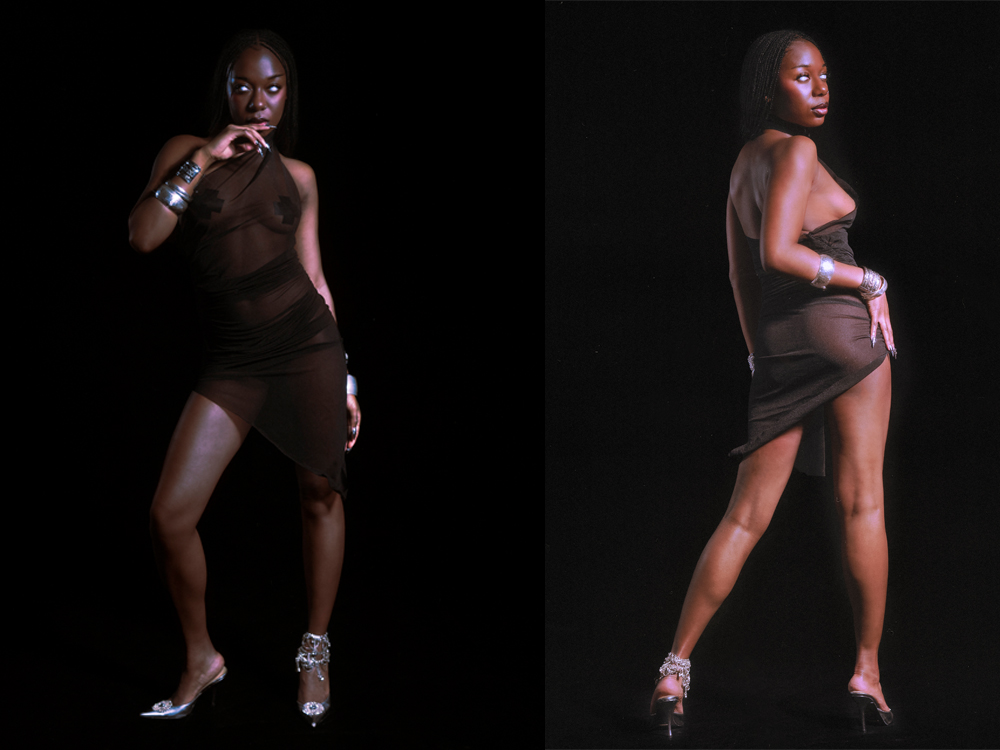
First, let’s talk about winning the Polaris Prize on your debut album. Was it affirming for you? Has it opened any doors?
It was the highlight of last year for me and so validating as an artist. It was also my first actual gala and the first time my family saw me perform.
You have a master’s degree in fine arts from Simon Fraser University. Did your thesis project make its way into your music at all?
I made what I call an audio play – which comes from this whole tradition of radio plays and aural storytelling. It was a sci-fi script based on this future dystopian society where everyone just raves 24/7 and people live in a virtual reality. There’s a constant exploration of sound – using it to elicit images. It was very multi-channel and the thesis had a lot of theory behind, which was based on distortion, dissonance and harmony in music. So I’m kind of living my thesis now.
For the Toronto stop of your tour, you hopped into the crowd and started singing and rapping at specific audience members. How does jumping into crowds – mosh-pit style – ignite your performance?
The give-and-take and back-and-forth that happens between me and the audience works as an energy loop. I’m giving my all to them and then they’re giving their all back to me. We create an electric current that runs throughout the entire room – it’s beyond us both. To face an audience like that is where you can actually have this very visceral and tactile experience, something that just reminds you that you’re alive.
You once said: ‘I live in a world that is aggressive towards my identities… so my reaction is going to be aggressive.’ You were directly speaking to how you have to navigate the music industry as a Black, queer woman. Do you feel the same way today?
Where I was at the time when I had that interview was when I released my first EP, BITCHPUNK. It was completely the experience I had at the time – I could feel so many aggressive oppressors going for me. Things have changed for me. When I made BITCHPUNK, I had just left Montreal for Vancouver, so there was also this feeling of feeling really exiled. Being who you are, no matter what, triggers all kinds of emotions for people who aren’t quite there yet and aren’t fully realized. I was trying to get my own aggression out and into that record, and it was perceived as being very in-your-face. I definitely have that part of my personality, it’s who I am. I’m a Montrealer; there’s not much I can do about that.
I’m interested in how you feel the perception of Blackness, feminism and queerness has changed…as opposed to when you released BITCHPUNK.
When I think back to that time, there was this surge of music that was really coming out of the LGBTQ community, and it was coming from people of colour as well, but not everyone was quite ready for it, so a lot of us made spaces like Soundcloud or various music streaming sites our own little kingdoms. I remember a lot of the raves and things that I went to were exposing me to new queer music and a new vibe, and it was very informed by those same internet spaces. Sites like those gave everyone access to marginalized and more fringe cultures that just were not heard or seen before. This was also a way I connected with people, collaborators, fans.
How did you know that releasing music online was the way to go?
I didn’t. When I put out my first record, I put it online because I didn’t have a team, I didn’t have anything. I didn’t know anything about the music industry. I made a Facebook post. People are just so much more understanding of marginalized voices now. It’s not necessarily as shocking in the same way. People are just more accepting – at least in my experience. There’s just been this definite shift where there’s this understanding of our culture and an embracing of difference. Having huge pop stars – who are out and open – is a really beautiful sign to me that we are headed in the right direction.
The title track for Good Luck repeats the words, ‘Wake up, speak up’ a number of times. Are these lyrics a mantra or a command to the world at large?
The title track for Good Luck repeats the words, ‘Wake up, speak up’ a number of times. Are these lyrics a mantra for you yourself or a command to the world at large?
Both. I was writing the album during the pandemic and it was just such an insular, introverted time. So largely I was writing to myself and speaking to myself, but one of the things I wanted to do with that album was to be able to translate this personal experience into something universal, something that everyone can kind of connect with. I’m speaking to myself but I’m also speaking to other people and maybe saying things that I wish had been said. I wish I had someone speak to me like this the way I tried to in the songs. I feel like I’m like this older, wiser version of myself, giving advice, saying: listen up, speak up, act up and don’t fuck it up because you’ve got big things to do.
It sounds like you’ve been hard on yourself. Does being your own critic help an artist to progress?
Well, I do believe you need to own your journey. I know what it’s like to have lived a very rough life. I understand living can feel hopeless. I’ve felt very lost and purposeless. I really am an advocate for taking responsibility for yourself. It is one of the most powerful things that you can do. You have to figure your shit out because you’re here for a reason and it’s up to you to actually actualize upon that potential and to become yourself really.
What was the toughest situation you had to transform yourself out of in order to get to the making of Good Luck?
When I became sober. I struggled with substance abuse for many years. It started when I was a teenager. Before I started making music I was a DJ and really into nightlife culture. I was really a party girl and it definitely shaped me, but there was also a really dark side to that heavy indulgence and self-destructive behaviour. I wasn’t healthy, I wasn’t living well and I wasn’t being good to myself or to other people. I became sober right before I left Montreal, and if I hadn’t gotten to that place and made music, I wouldn’t be where I am today.
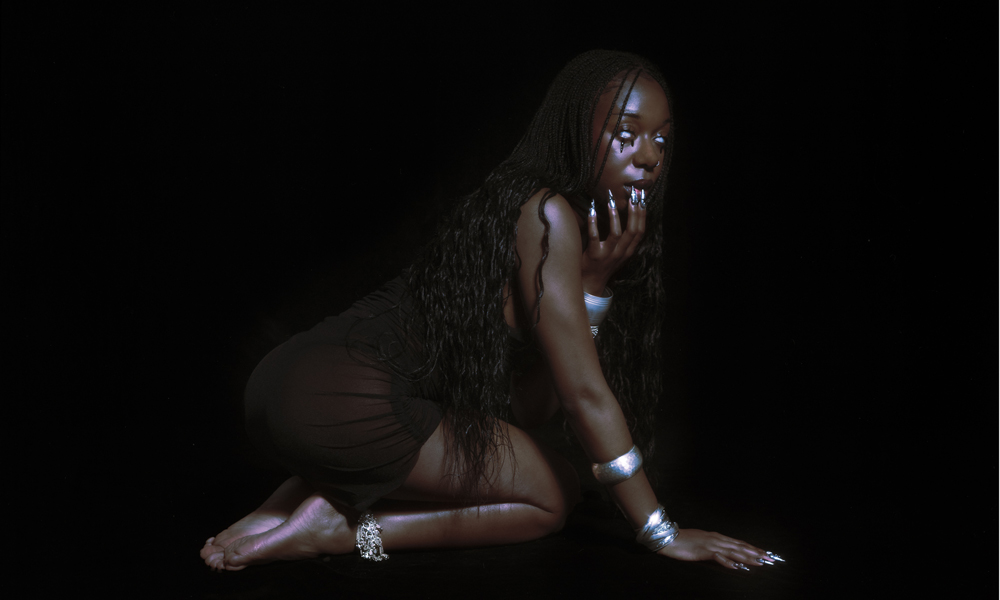
Do you think electronic music has the same amount of revolutionary power as punk rock?
Of course. It is the only music genre that is truly universal. It’s music that speaks to everyone everywhere in the world. What’s more punk than that? That is something that can translate in such a global way and also in a way that speaks to so many human experiences. It actually makes you physically move your body – that’s divine. That’s something that’s not of the conscious and obvious world.
Do you think Black and queer dance music creators from the past are finally having their day in the sun?
I see steps in the right direction. For example, Beyoncé’s Renaissance Tour had a lot of DJs open the tour who were queer, Black and Brown DJs. Many of them are staples in the electronic music community. I went to the show in Toronto and it was life-changing because you could see how she was bridging the underground with the mainstream. It shouldn’t be a novelty that queer and Black people are finally getting their flowers while they’re alive – which is an important fact of Renaissance. A lot of the great icons of Black and LGBTQ communities – and the hybridized communities of those two – get their flowers after they’re already dead and gone. Seeing people being celebrated now while they’re alive – while they’re here to receive them – it’s really powerful.
What is your relationship with phrases such as “Black excellence” and “queer excellence”? Do you feel they are motivational? Unattainable?
I can only speak for myself. Excellence is something that I always aim for because I would never be satisfied with mediocrity. That’s just not a vibe for me. I don’t want to get by on the bare minimum. I want to always be outdoing myself and improving my craft. I always want to be better. So, for me, the idea of excellence is not exhausting – it’s invigorating.
I’m still absorbing tracks off of your EP BITCHPUNK – specifically “Medusa.” What is it about that mythical creature that made you want to name a song after her?
She’s a mythological figure who is strange, powerful, feminine, and she’s seen as an outcast because of all that. It’s very paradoxical of the feminine experience, so that resonated with me. It plays with the name of the EP too: BITCHPUNK is a woman who’s rebellious, loud, isn’t afraid to be emotional and to express that emotion in an intense way.
Your latest album has a track called ‘Safe.’ For queer people, are safe spaces fallacies or can they be realities?
I don’t think safe spaces exist. That’s not the point of living. I don’t have utopian ideals. It sounds harsh or pessimistic but I don’t see a point in living that way. I am more about accepting how the world is right now. The question then becomes how to navigate it. This means learning how to interact with others and evolve as a human being.
Which queer artists – past or present – would you say have been able to make music that continues to excite you?
Someone who I admire and who influenced me a lot is Sophie. She made a sample pack for [music creation platform] Splice.com and it’s all over my first EP. Her music changed so much of my understanding of what pop and electronic music could be. It was just a really great loss for the community after she passed.
Name a song that represents an era-defining moment for you.
I would say it’s got to be ‘I Wanna Be Where the Boys Are’ by The Runaways. I found them singing live in Japan on YouTube when I was just a teenager and was transfixed. I had never really seen a group of women just literally going so hard. They were so raw and I love what they represent – artists with real fire inside of them.
Your new single, ‘Let You In,’ is so soothing and more romantic than anything you’ve ever released. So many fans see it as a wild card. Do you?
I was just in a different space. I was feeling happy and full of love. Good Luck gave me permission to explore a different side of my artistry and dive into different emotions that I was too afraid to go into before because vulnerability and softness is so hard.
You’re a huge fan of funk icon Betty Davis, whose body of work critiques gender roles in a powerful way. Who would you say is in the same lane as her today?
It’s less about being in her lane and more about tapping into a certain kind of energy. People like Nicki Minaj and [Montreal dance music duo] Pelada come to mind. They are unafraid to be themselves, to own that on stage, and express female sexuality in a very raw way.
Will there a new album brewing for 2024?
I start up touring again in March by playing Pitchfork in Mexico City. Then, I will definitely be releasing more music. I have more than a few things up my sleeve, so it’ll be my busiest year.
ELIO IANNACCI is an award-winning arts reporter and graduate student at York University whose research interests include ethnomusicology and gender studies. He has contributed to more than 80 publications worldwide, profiling icons such as Barbra Streisand, Lady Gaga, Aretha Franklin and Beyoncé. His academic work is supported in part by funding from the Social Sciences and Humanities Research Council.

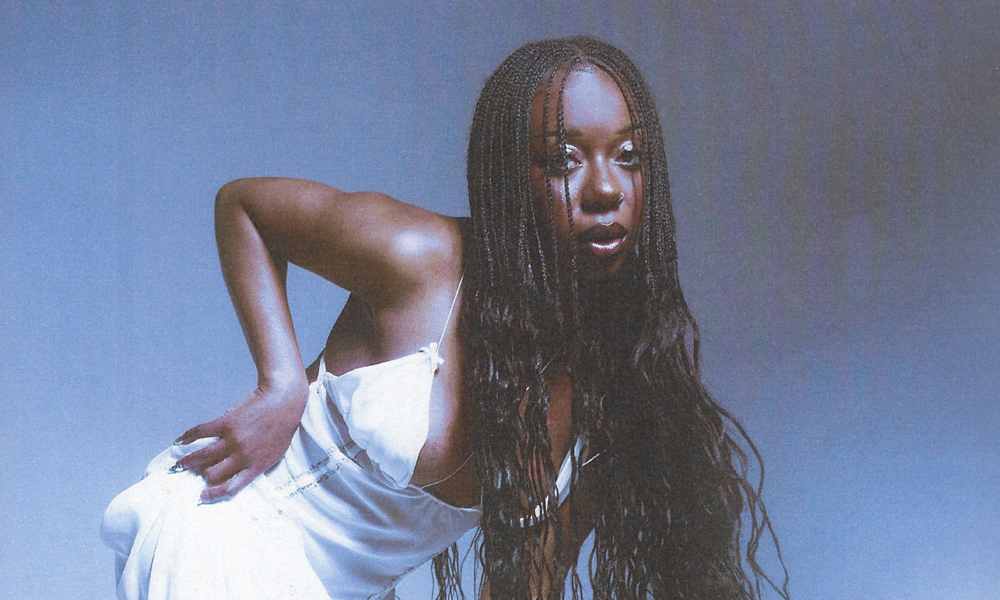

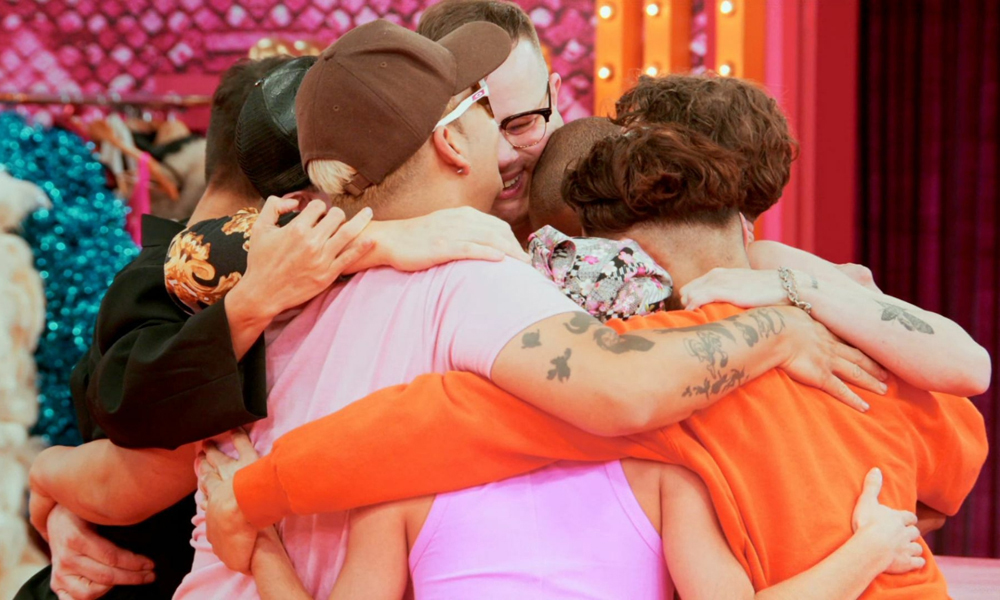
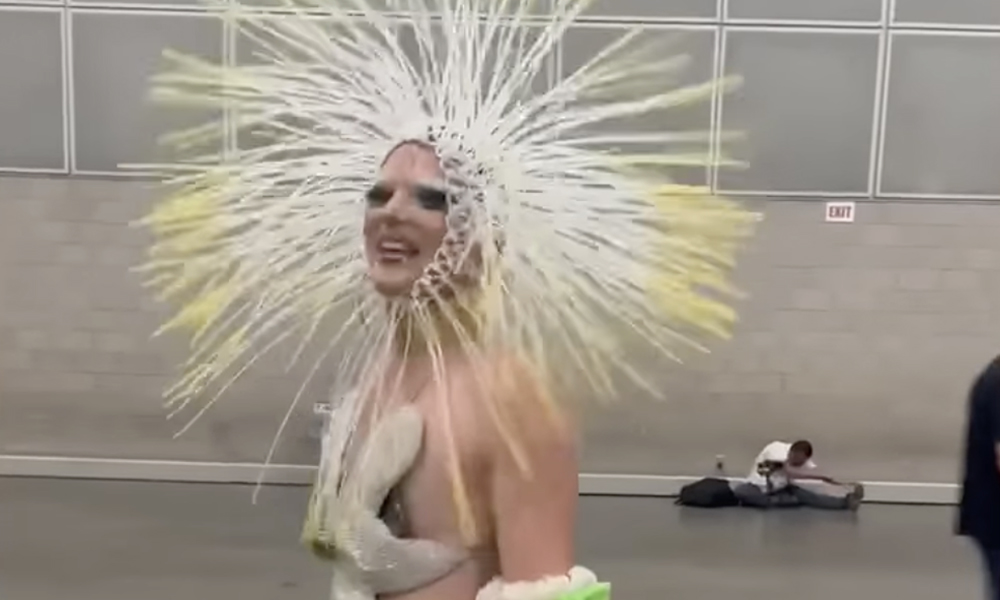
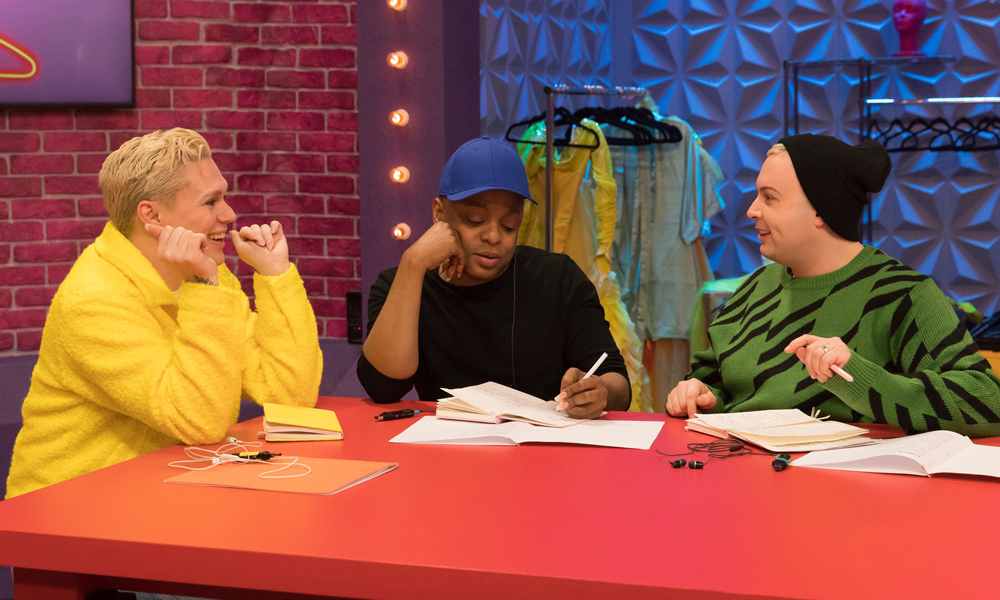

POST A COMMENT